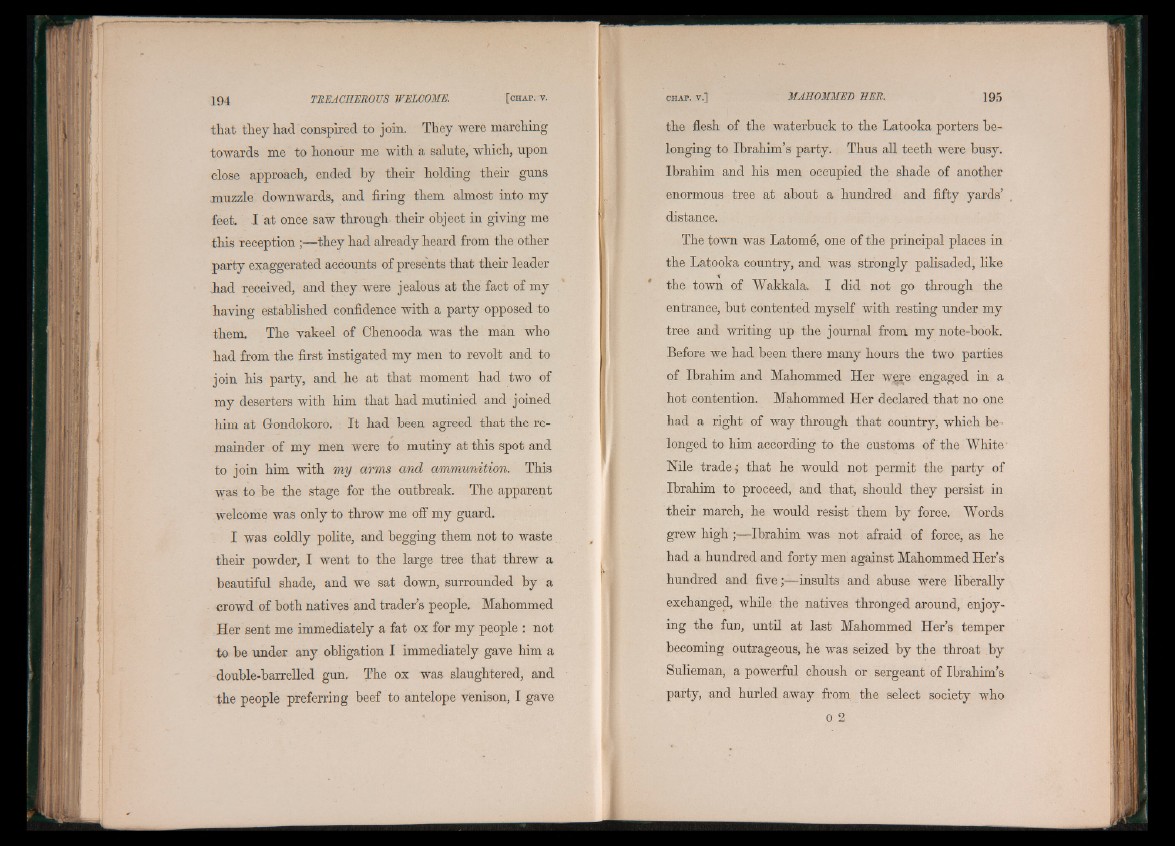
that they had conspired to join. They were marching
towards me to honour me with a salute, which, upon
close approach, ended by their holding their guns
muzzle downwards, and firing them almost into my
feet. I at once saw through their object in giving me
this reception;—they had already heard from the other
party exaggerated accounts of presents that their leader
had received, and they were jealous at the fact of my
having established confidence with a party opposed to
them. The vakeel of Chenooda was the man who
had from the first instigated my men to revolt and to
join his party, and he at that moment had two of
my deserters with him that had mutinied and joined
him at Gondokoro. I t had been agreed that the remainder
of my men were to mutiny at this spot and
to join bim with my arms and ammunition. This
was to be the stage for the outbreak. The apparent
welcome was only to throw me off my guard.
I was coldly polite, and begging them not to waste
their powder, I went to the large tree that threw a
beautiful shade, and we sat down, surrounded by a
crowd of both natives and trader’s people. Mahommed
Her sent me immediately a fat ox for my people : not
to be under any obligation I immediately gave him a
double-barrelled gun. The ox was slaughtered, and
the people preferring beef to antelope venison, I gave
the flesh of the waterbuck to the Latooka porters belonging
to Ibrahim’s party. Thus all teeth were busy.
Ibrahim and his men occupied the shade of another
enormous tree at about a hundred and fifty yards’
distance.
The town was Latome, one of the principal places in
the Latooka country, and was strongly palisaded, like
i the town of Wakkala. I did not go through the
entrance, but contented myself with resting under my
tree and writing up the journal from my note-book.
Before we had been there many hours the two parties
of Ibrahim and Mahommed Her wme engaged in a
hot contention. Mahommed Her declared that no one
had a right of way through that country, which belonged
to him according to the customs of the White
Nile trade j that he would not permit the party of
Ibrahim to proceed, and that, should they persist in
their march, he would resist them by force. Words
grew h ig h ;—Ibrahim was not afraid of force, as he
had a hundred and forty men against Mahommed Her’s
hundred and five;—insults and abuse were liberally
exchanged, while the natives thronged around, enjoying
the fun, until at last Mahommed Her’s temper
becoming outrageous, he was seized by the throat by
Sulieman, a powerful choush or sergeant of Ibrahim’s
party, and hurled away from the select society who
o 2